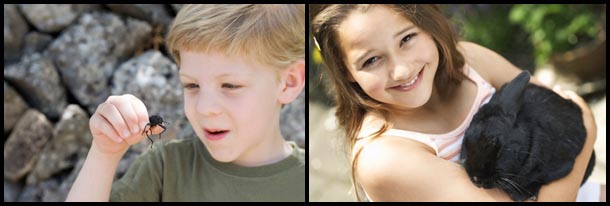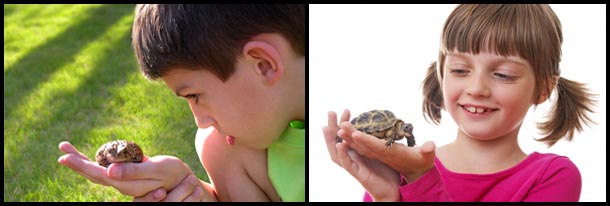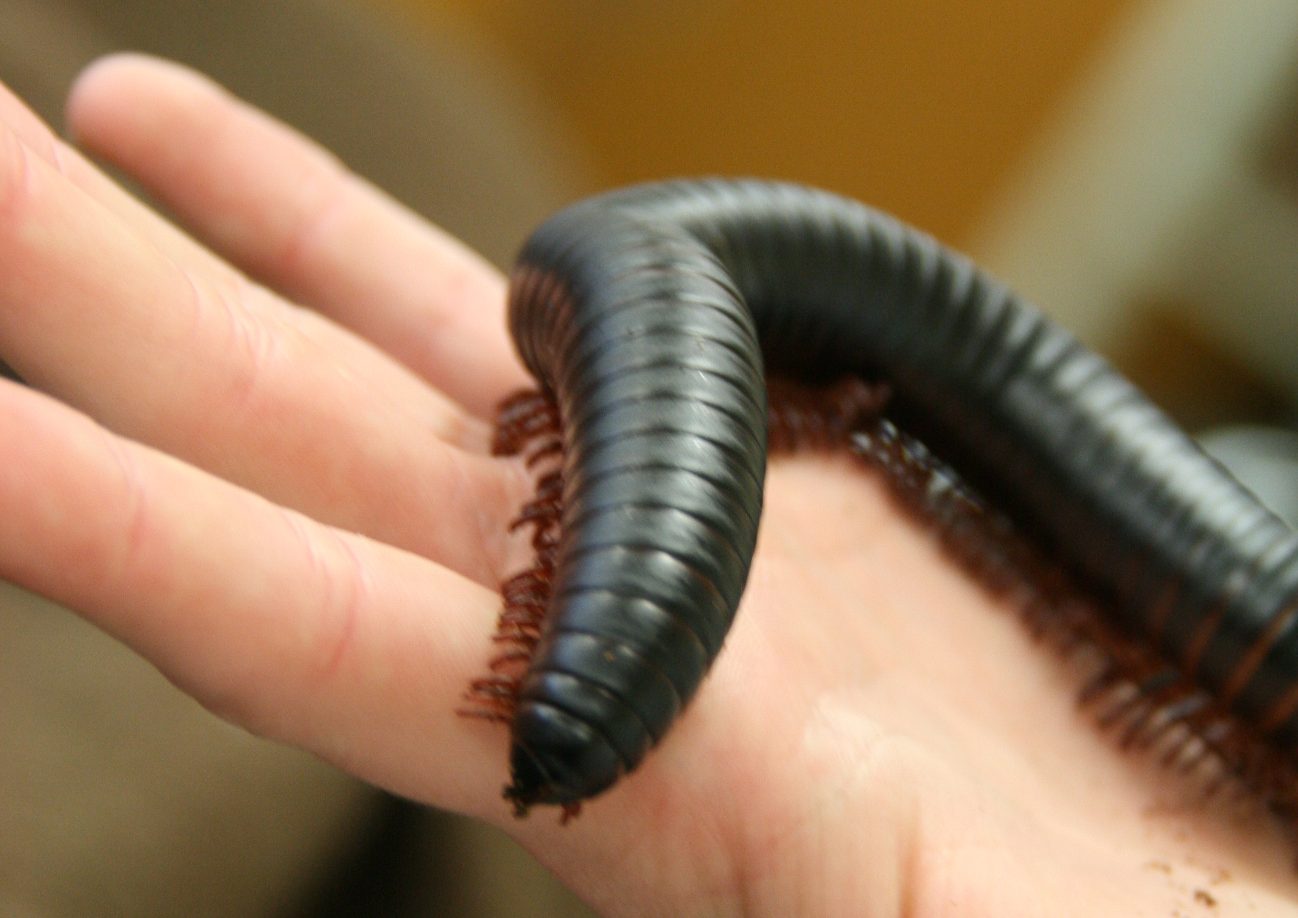Giant African millipedes do not bite, and will only harmlessly nibble your skin. They are handled easily as they are calm, docile creatures. However, they can be harmful when threatened, as they secrete a fluid which can cause an allergic reaction to sensitive skin.
Giant African millipedes as pets
Giant African millipedes are easy to keep and care for, so make a great pet if you’re looking for a beginner exotic pet.
Millipedes are arthropods, so surprisingly aren’t insects, and are actually closely related to crabs and shrimp. Although ‘mili’ makes it seem like they have a thousand legs, they only have about 200.
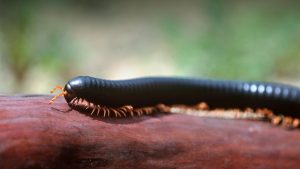
They can also be housed pretty easily. You only need a 10-15 gallon tank for a couple of them, though floor space is more important than height. They don’t climb too often, but make sure to have a tight- fitting lid to prevent escapes.
Inside their tanks, they’ll need a thick layer of peat moss for them to burrow in, with some pieces of bark. The tank should be kept between 24 and 30 degrees Celsius (around 80F). This can be achieved using an under-tank heater. The heater should be placed at only one end of the tank as is can dry out their substrate.
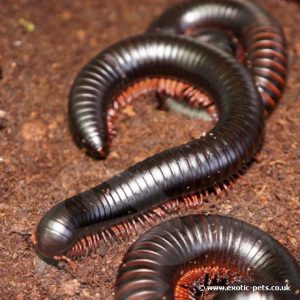
Millipedes should be fed a variety of fruits and vegetables. This could include lettuce, cucumber, tomatoes, melon and banana, all cut into small pieces. They’ll also need a small dish of shallow water. It is best to use filtered water as chlorine residuals common in city tap water can be harmful to them.
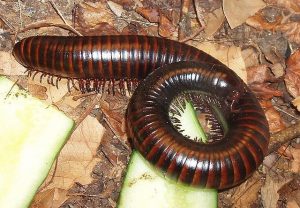
Do Giant African Millipedes bite?
Giant African millipedes are easily handled, since they are naturally calm creatures, and move quite slowly. They do not bite, although they may gently nibble the surface of your skin if searching for food. This won’t hurt though, and their mouths are far too soft to cause any injury.

However, you should always wash your hands after holding a millipede, as they can secrete a yellow-brown fluid from their body segments. This is called a repungnatorial fluid, as it smells terrible. The fluid can irritate your hands and mouth, and some are very sensitive to it. Secreting the liquid can be a sign that the millipede is stressed, so if you notice it, you should stop handling the animal.
You can also tell that they’re feeling stressed if they curl up into a coil or ball. This means they are trying to protect themselves, as they feel threatened and scared.

Millipedes cannot survive a fall if you drop them. Always be extremely careful when handling them, and do not lift them over a few inches from the ground or a large flat surface.
Giant African Millipedes with other pets
Giant African Millipedes are just fine when kept together in a single tank, and won’t harm each other. They can also be kept with other millipede species, so long as the temperature is safe and works for both.
However, it could be unsafe if you keep them with other arthropods or insects. There are a couple species they are compatible with, such as springtails, but generally millipedes prefer to be kept alone. Always research before keeping your millipede with another species.
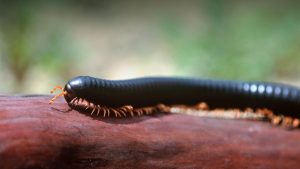
Animal-Club provides animal parties or animal handling workshop where your will be able to see, learn and interact with the insects and other wonderful animals with the help of our presenters. Our mobile zoo has many friendly animals such as rabbits, tarantulas, geckos, vinegaroons and more that will be perfect for an animal party. We can also come over to your school for an animal school visit or arrange for an animal workshop with us where the children can learn about animals and have fun too.
